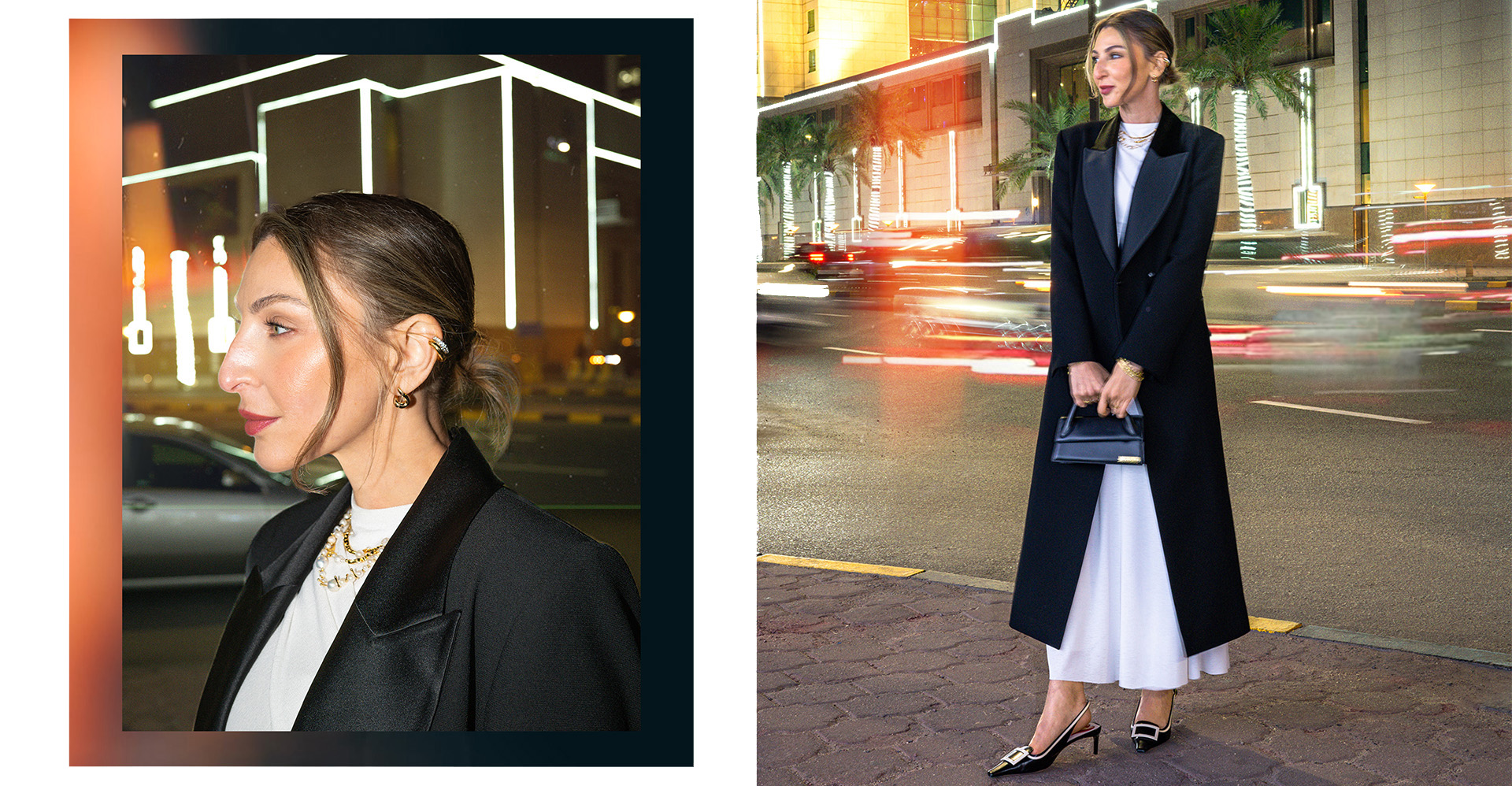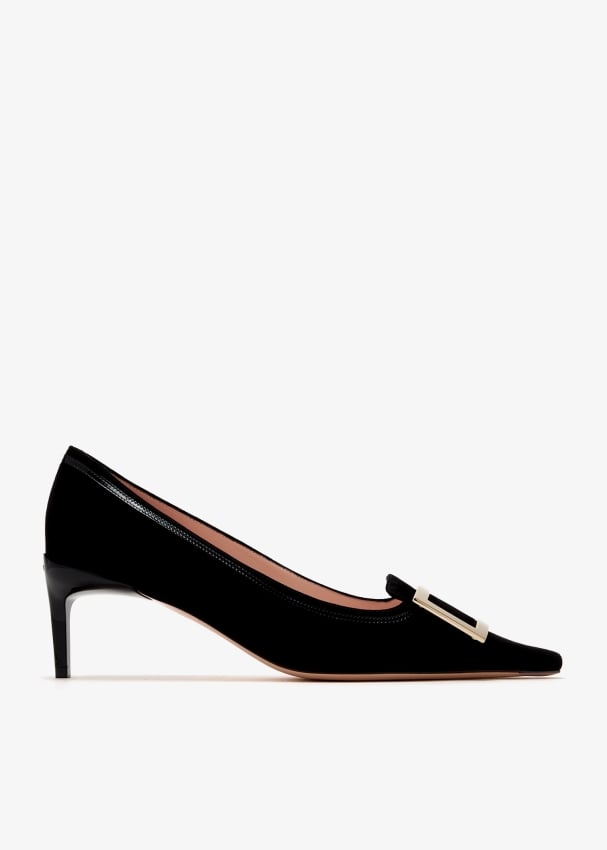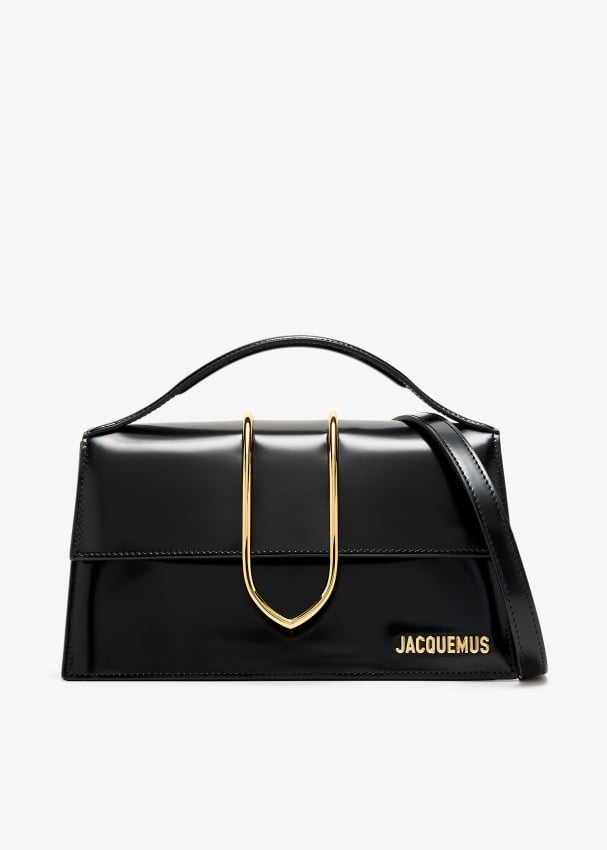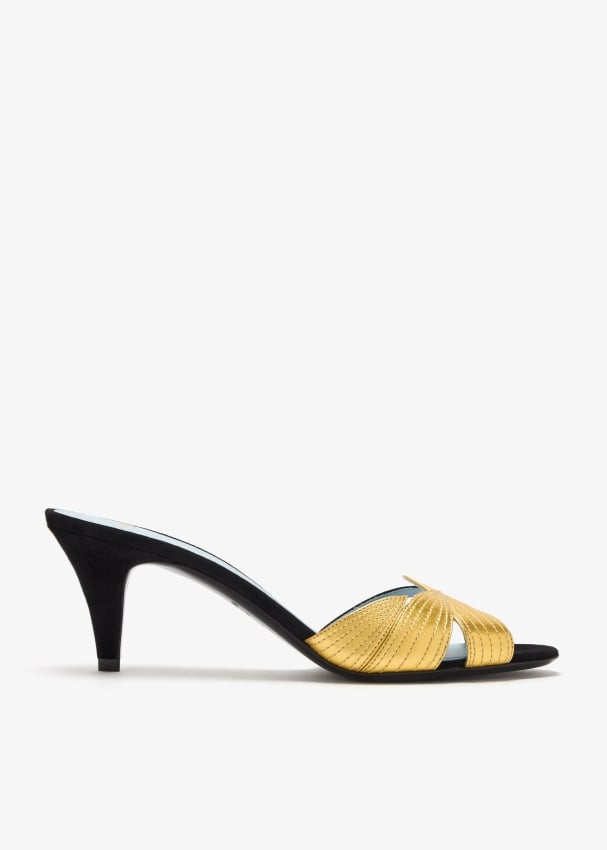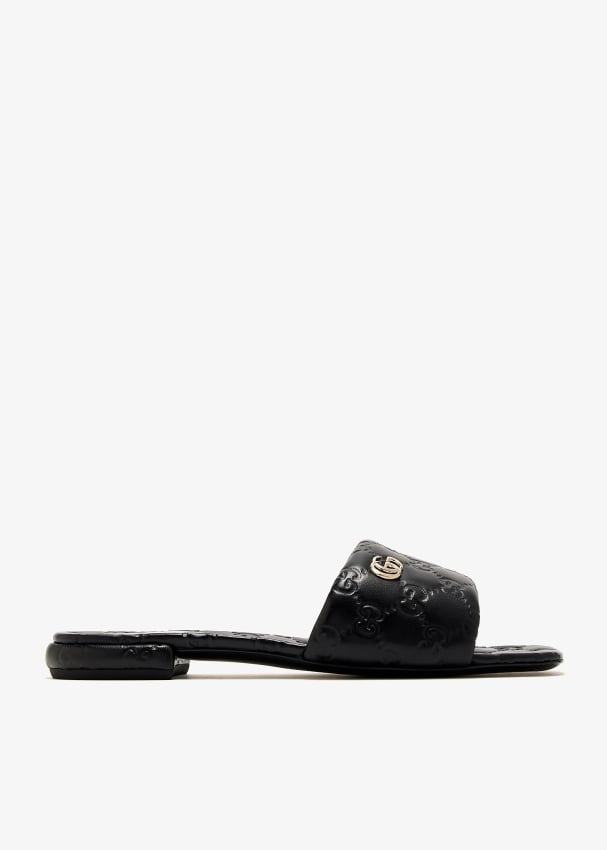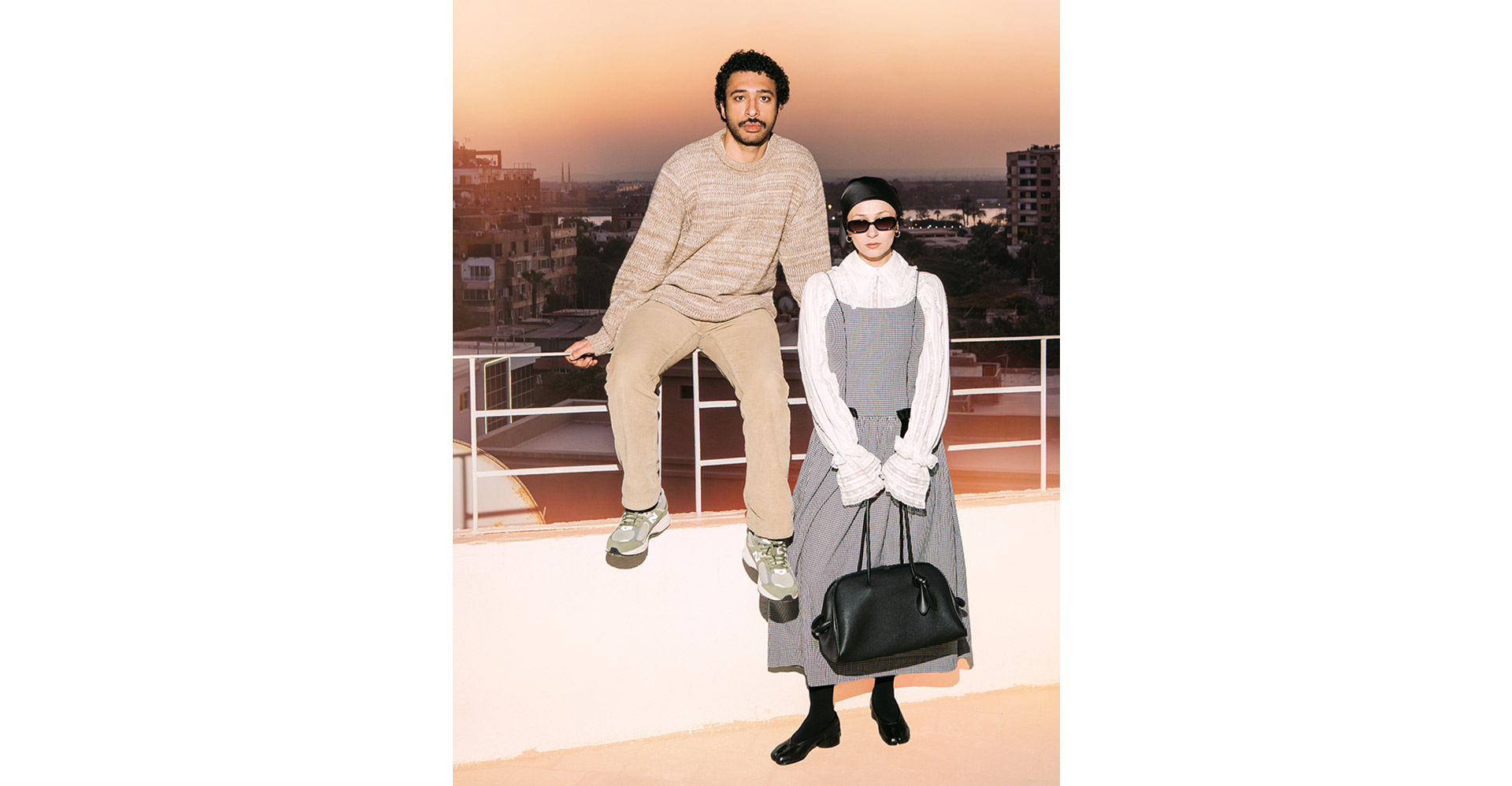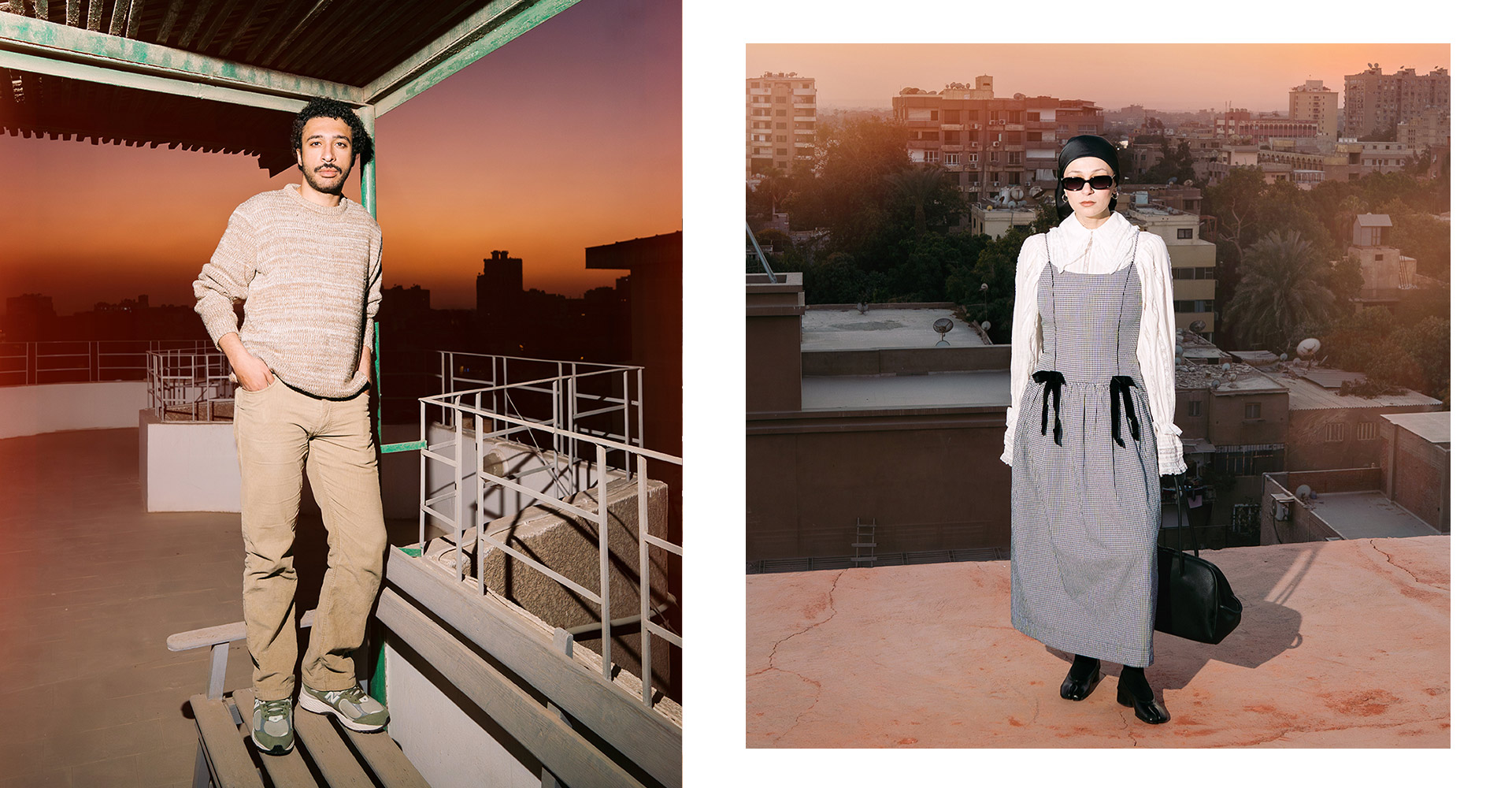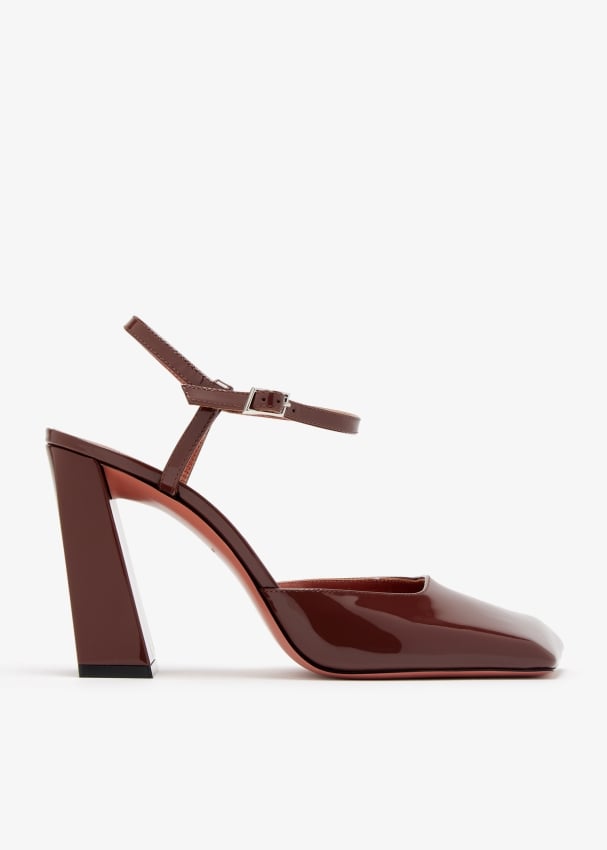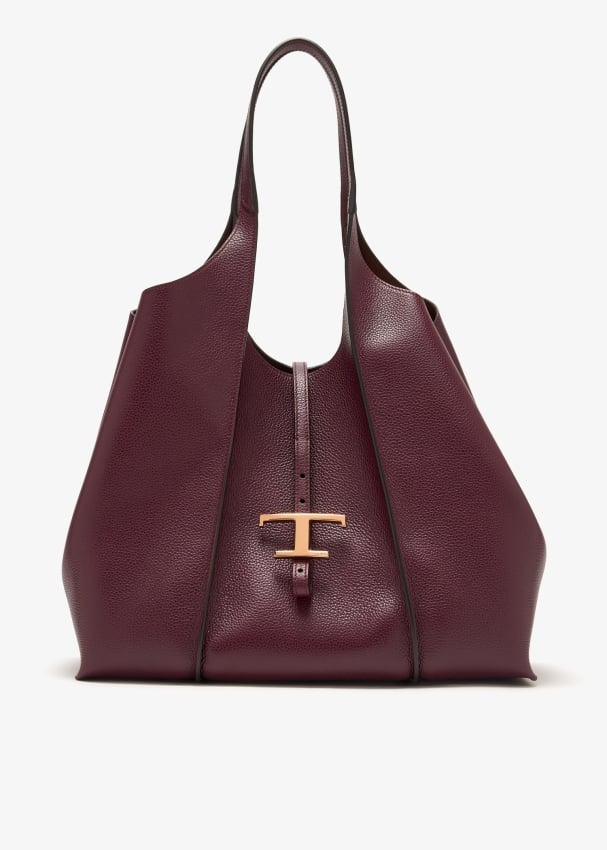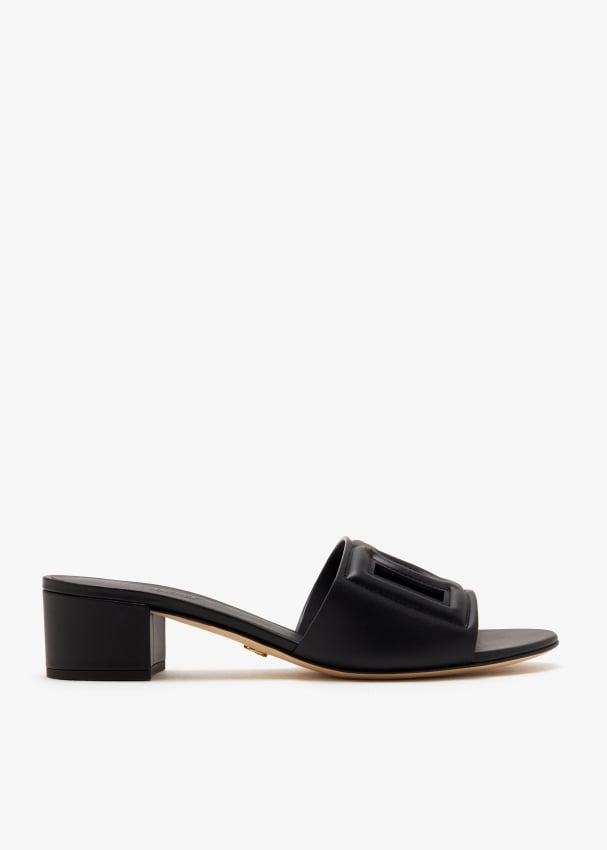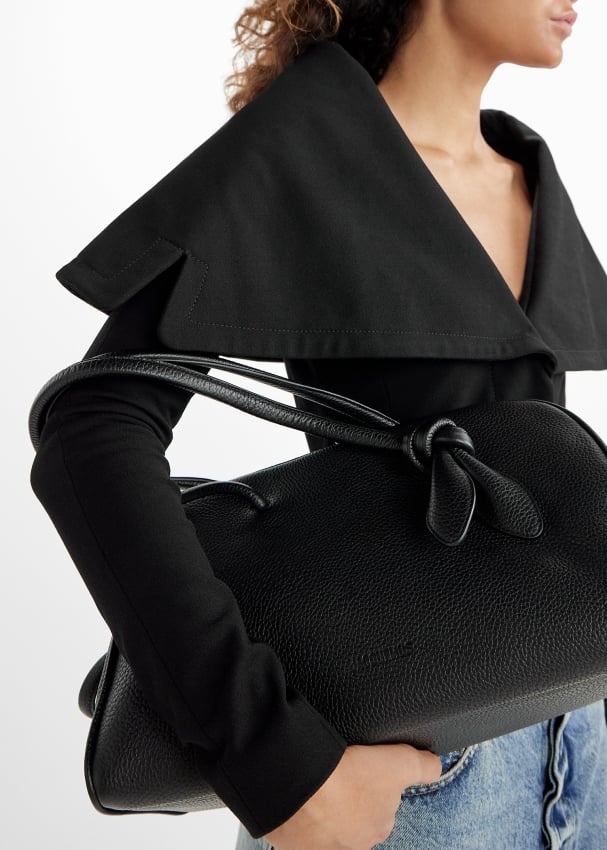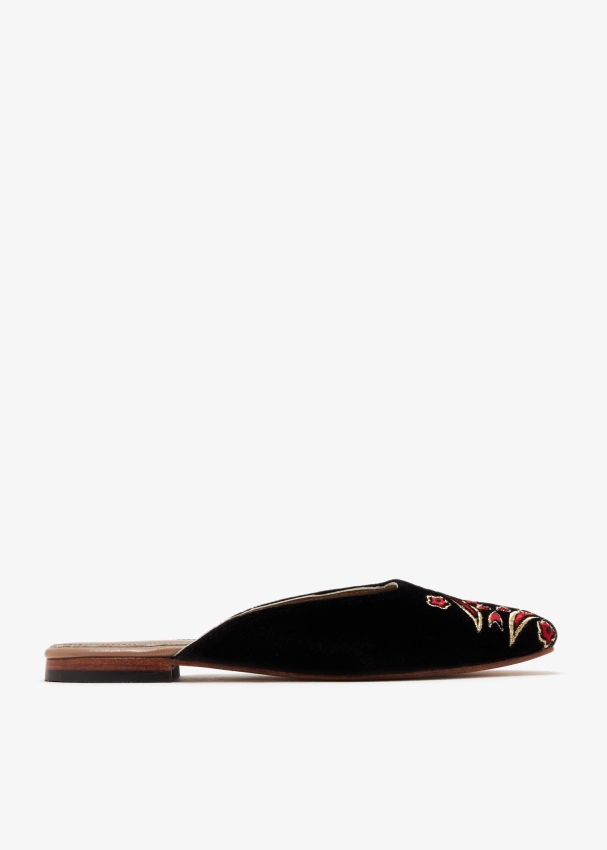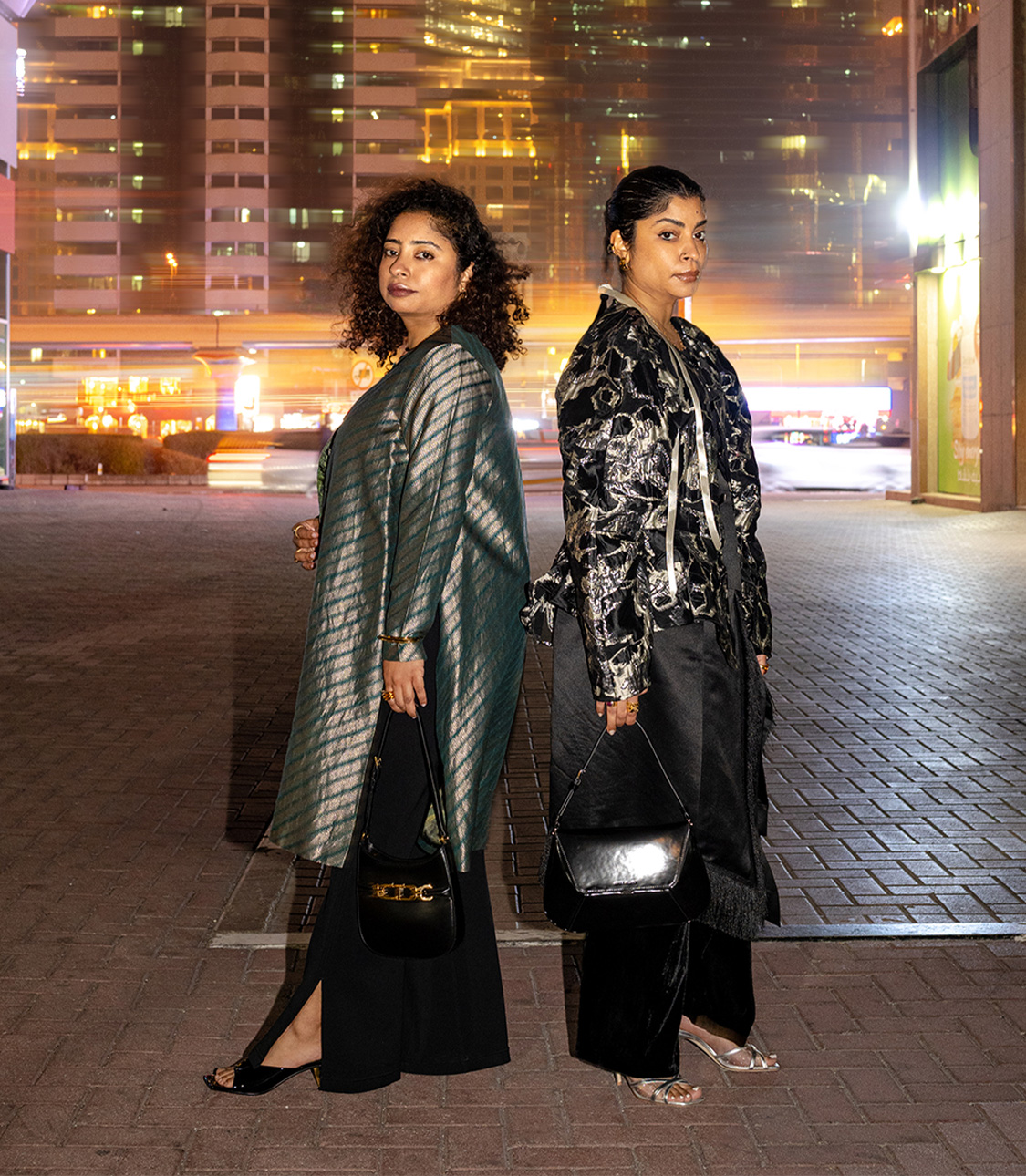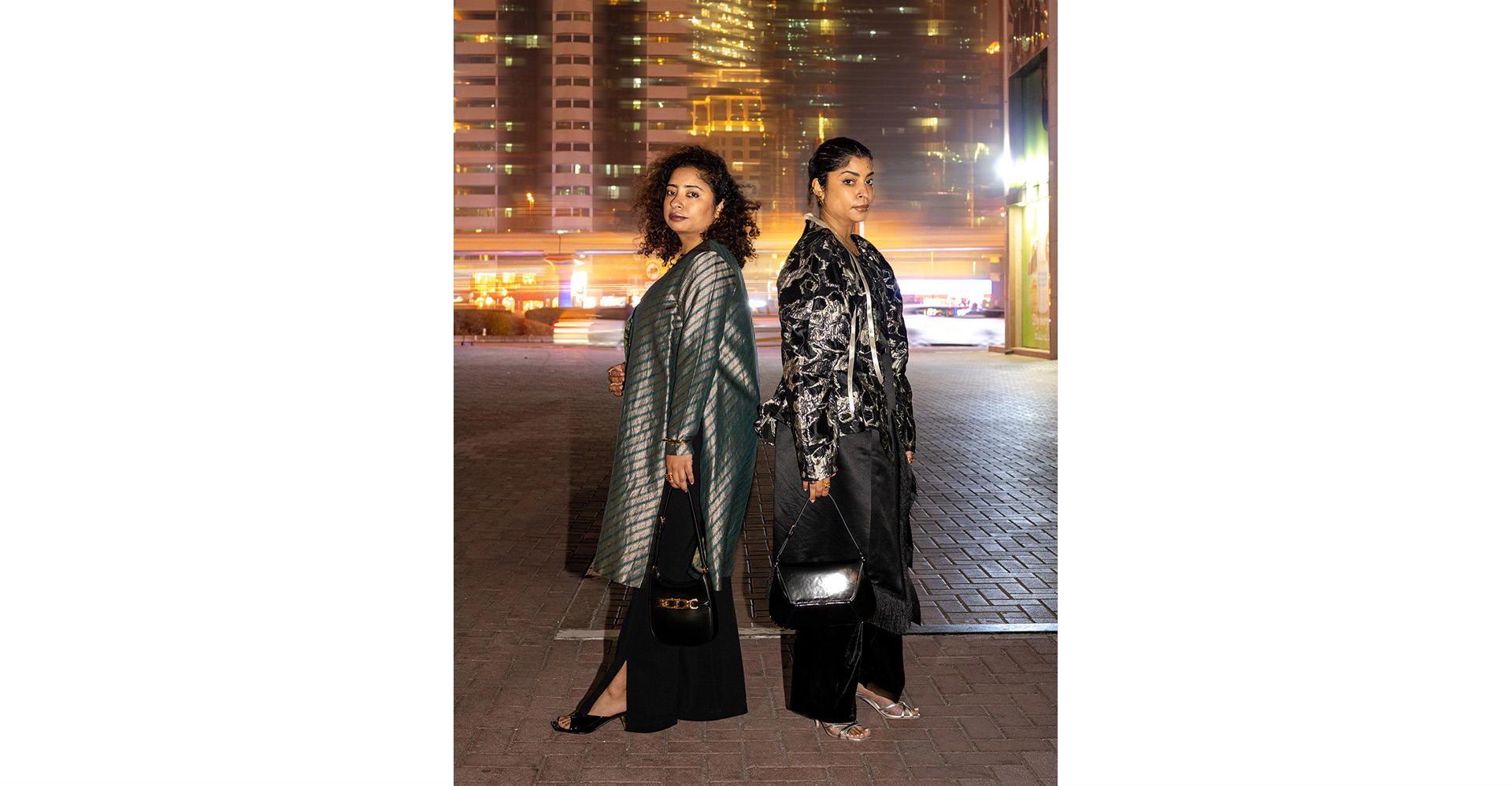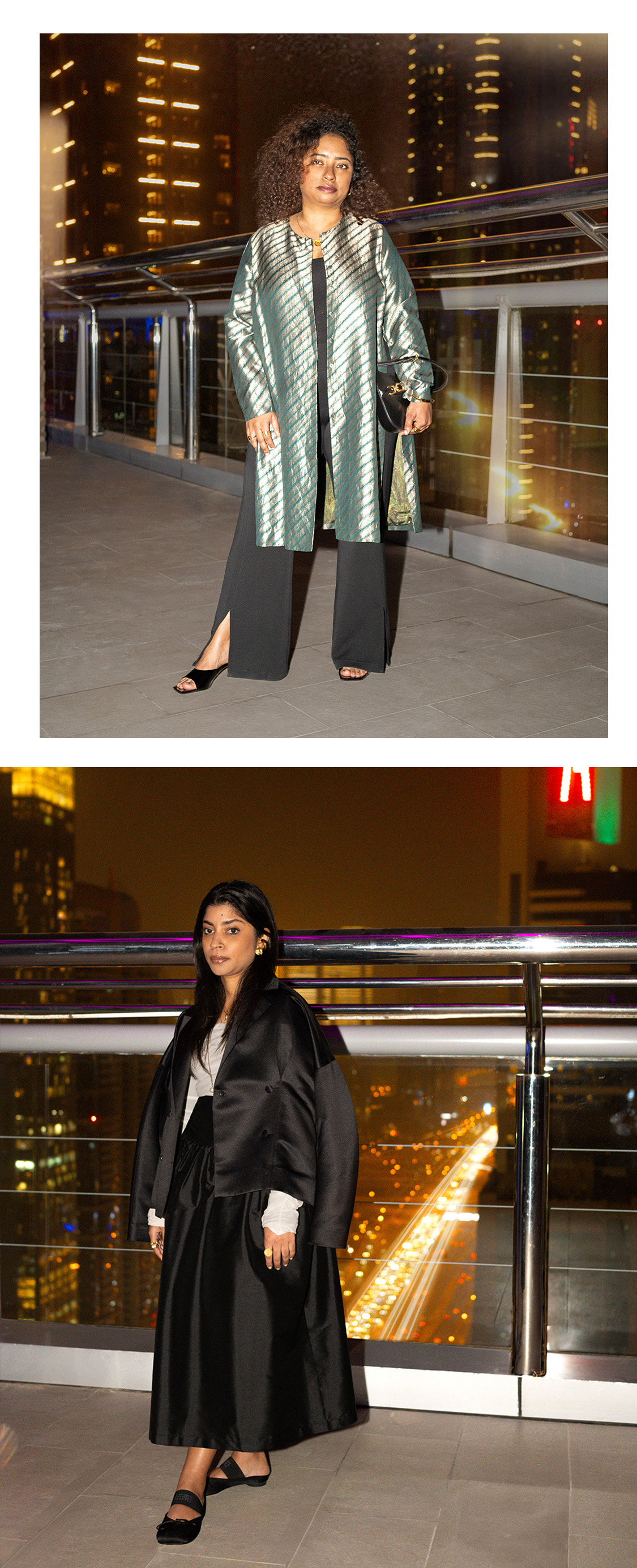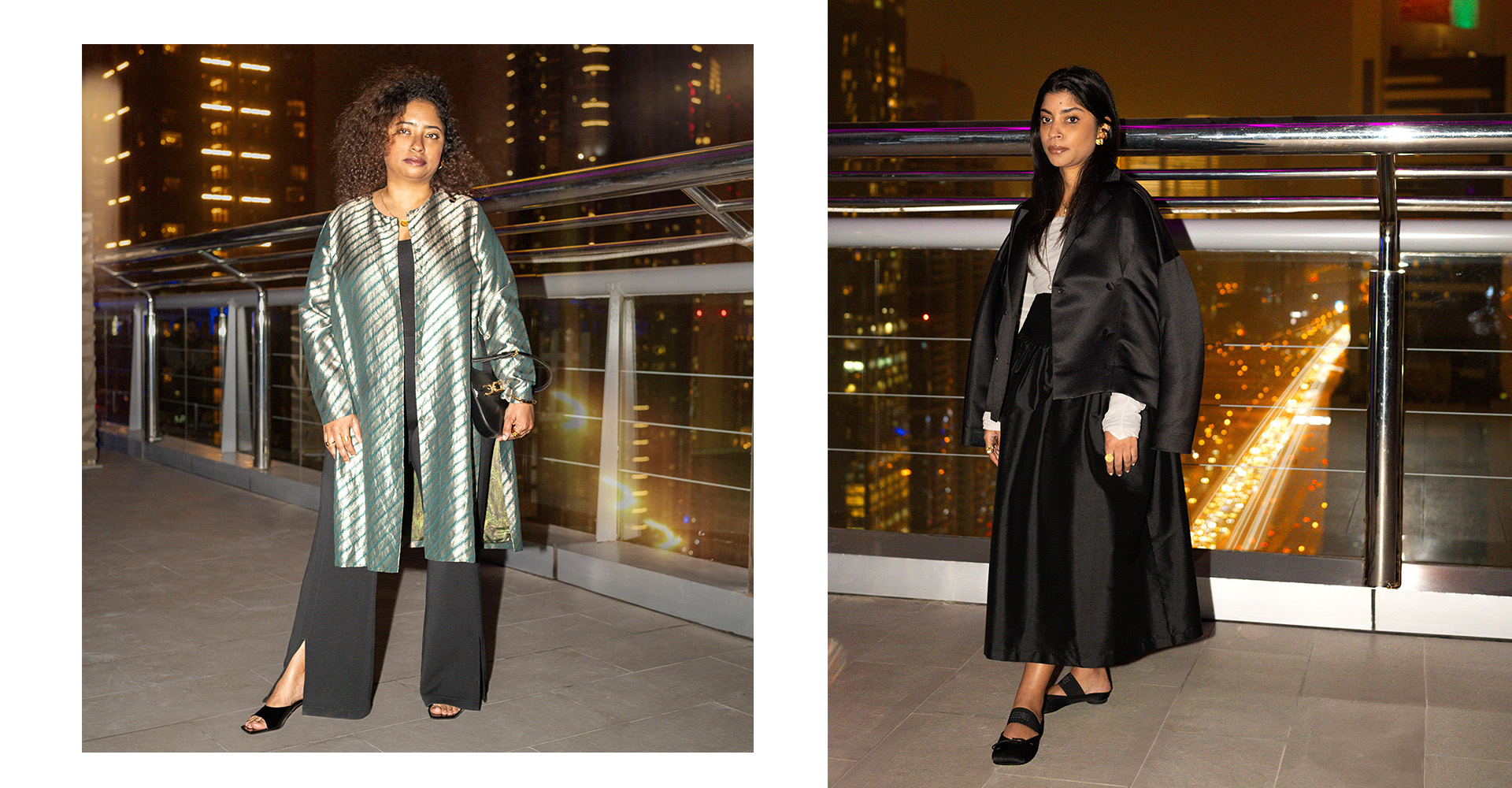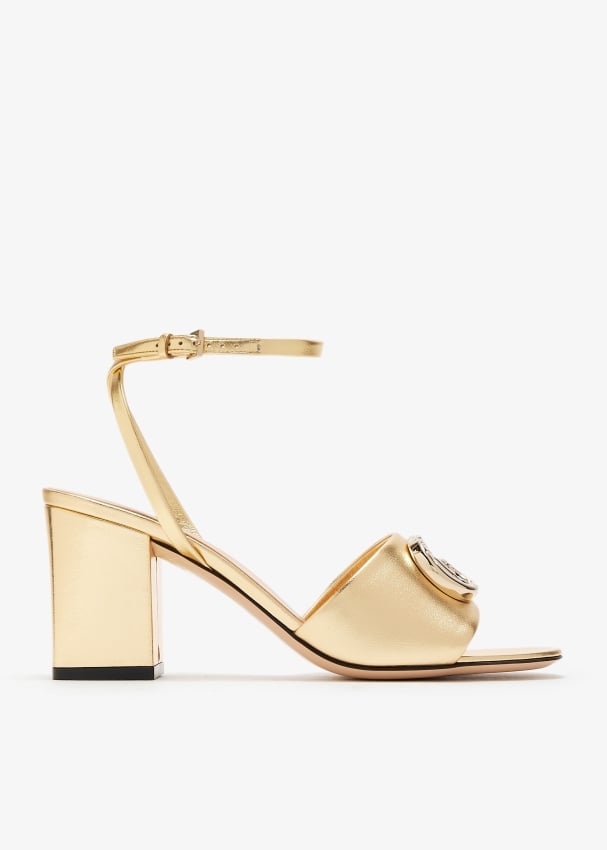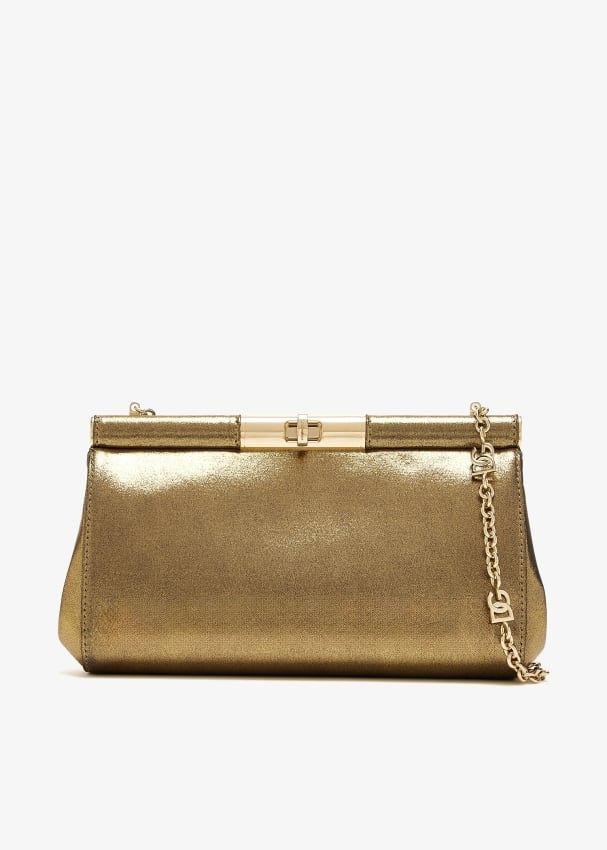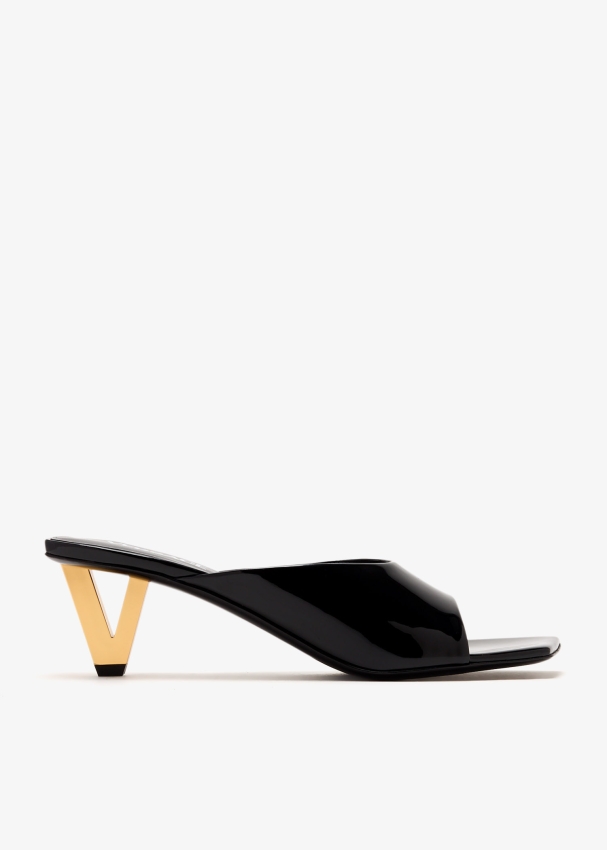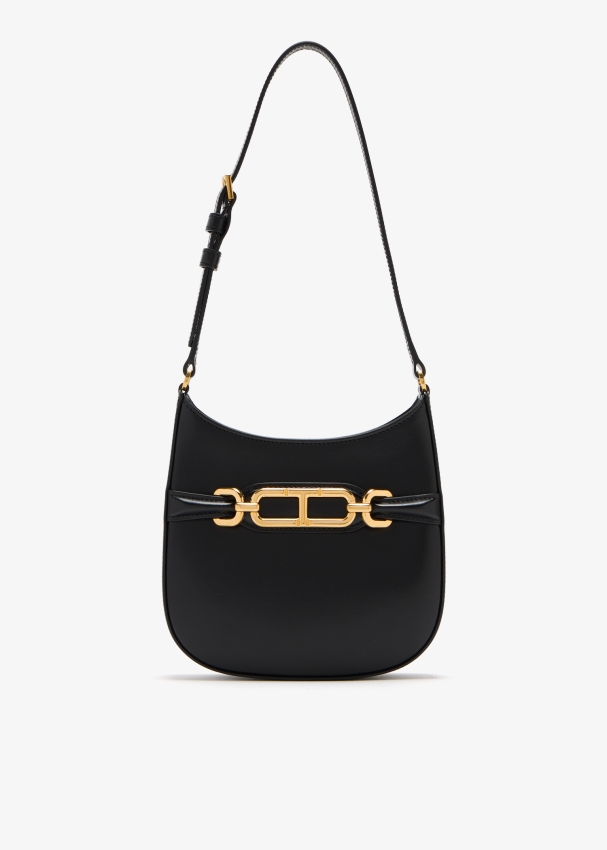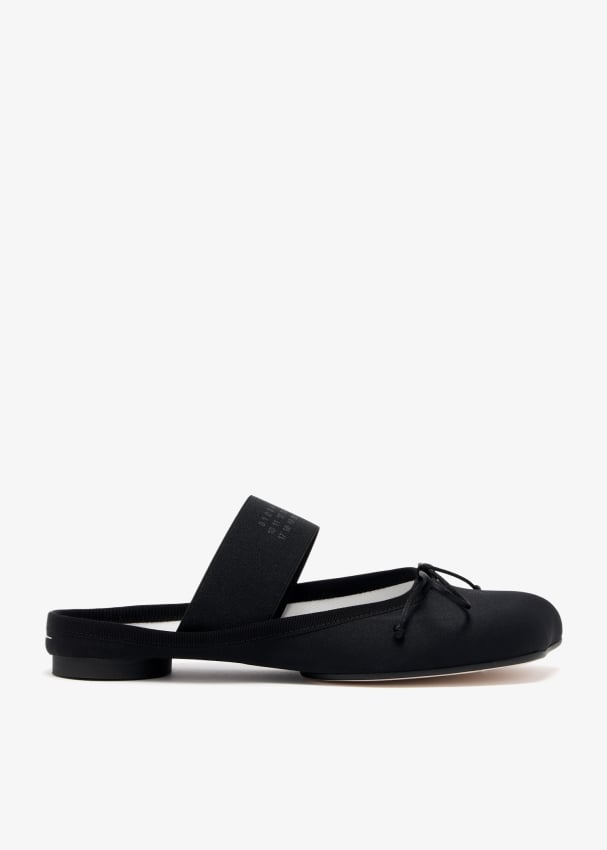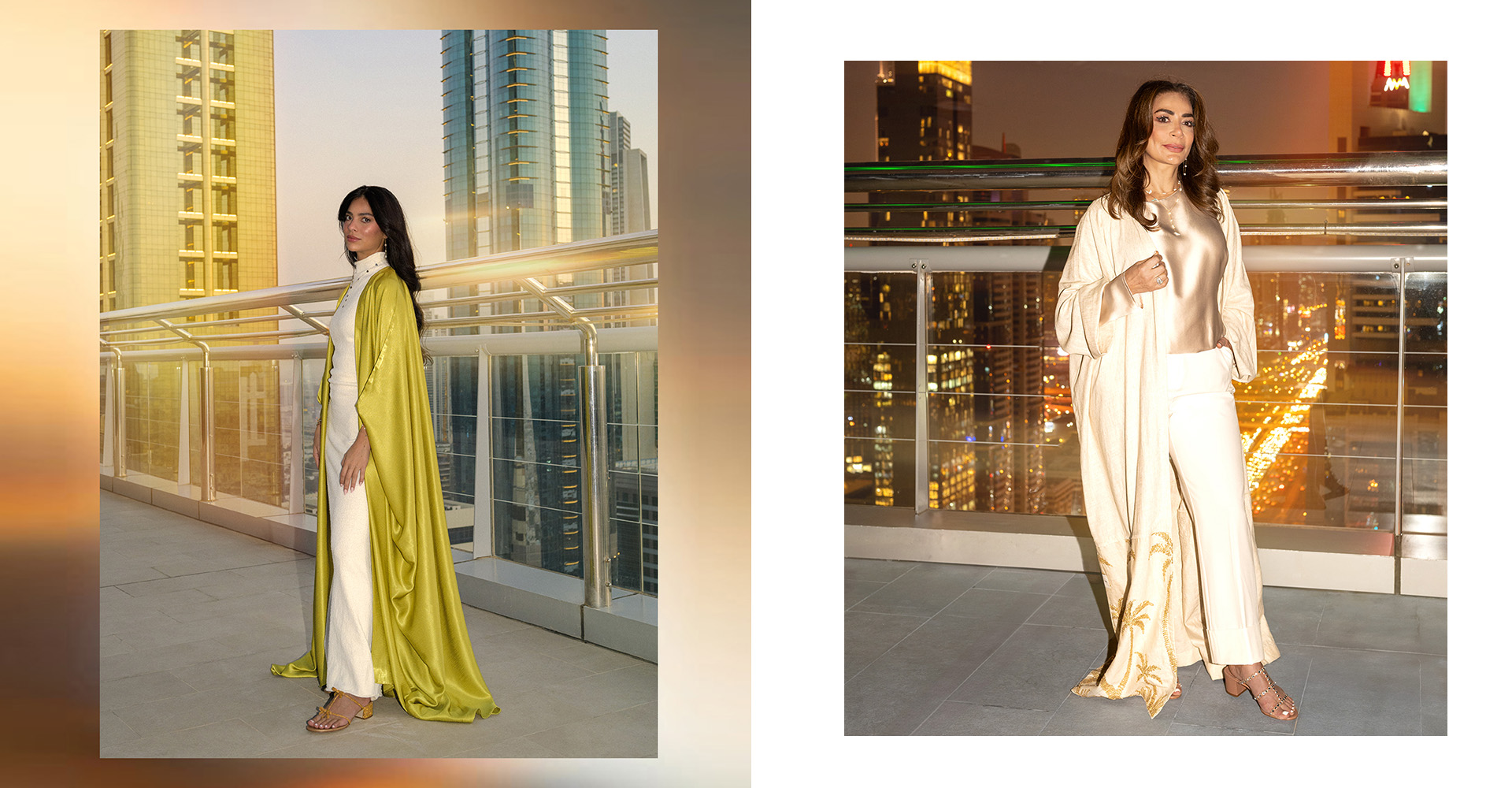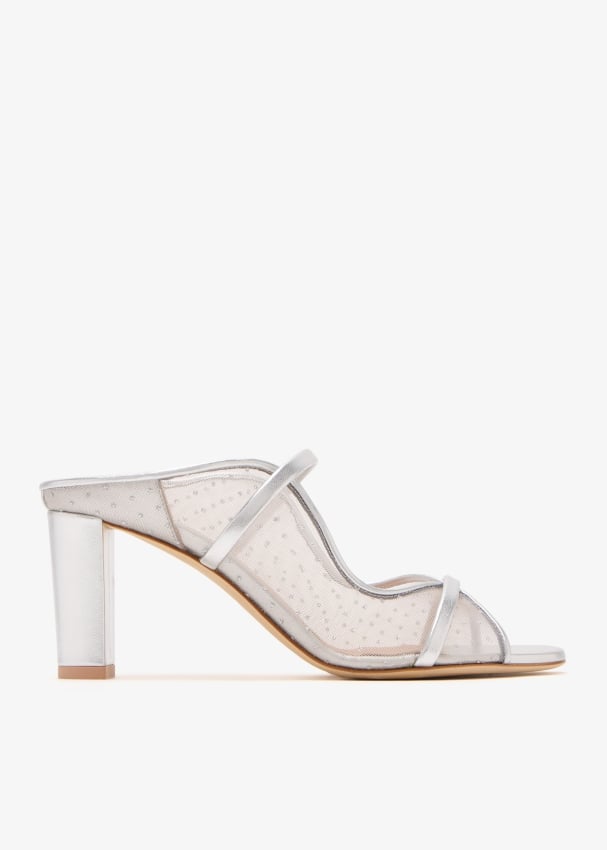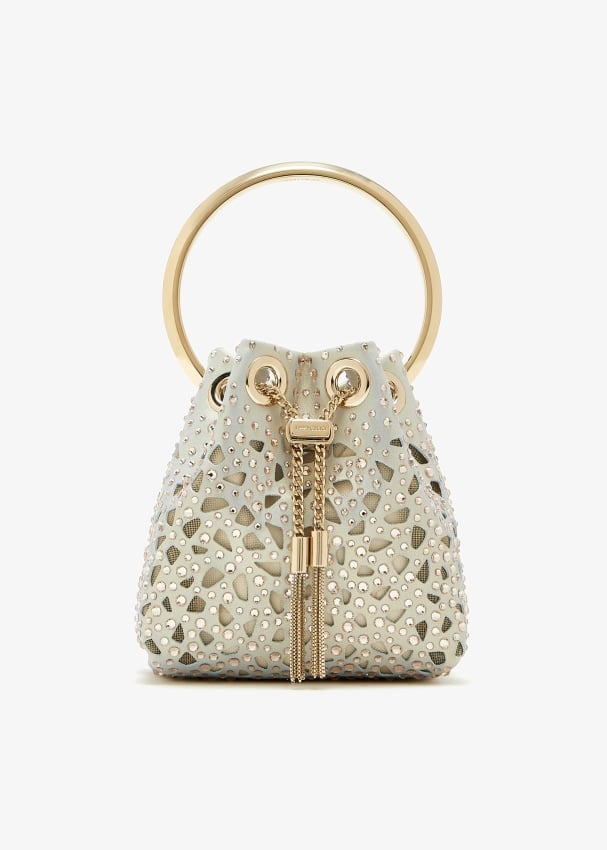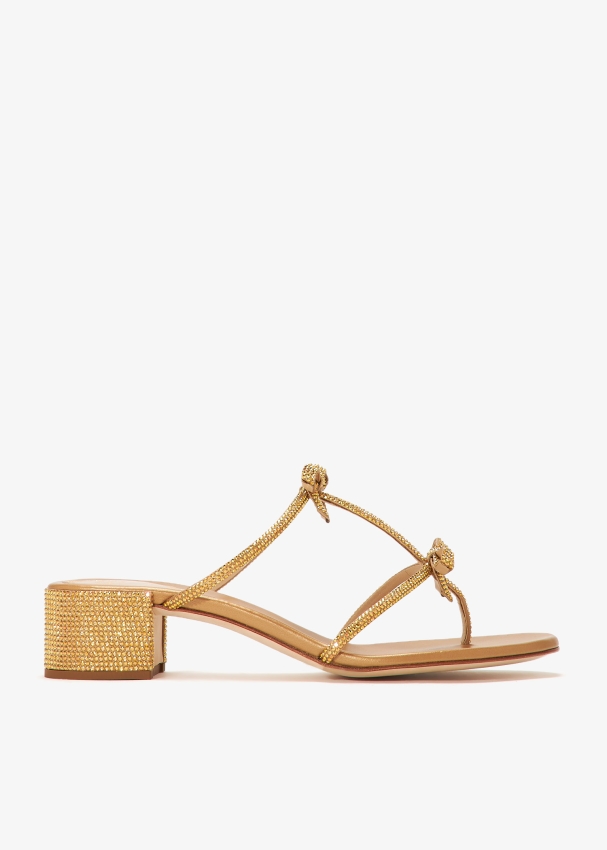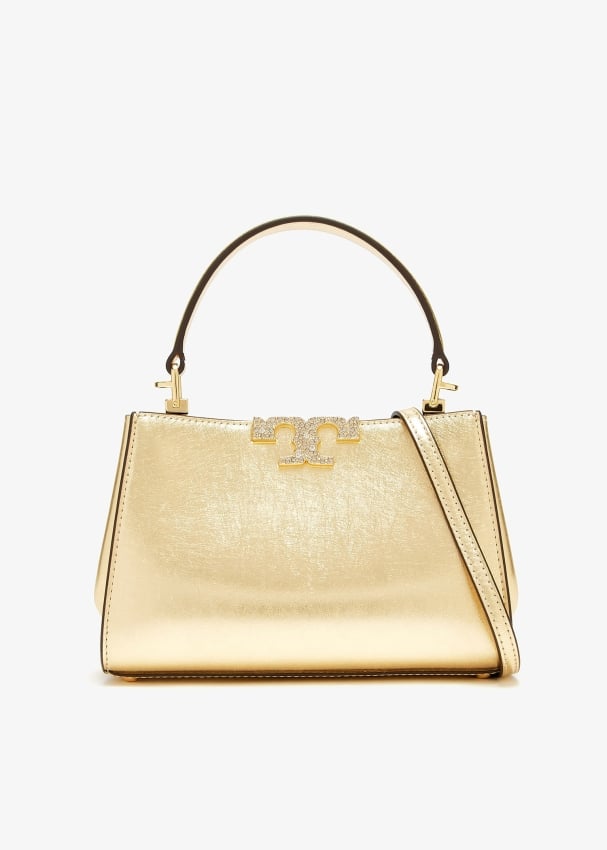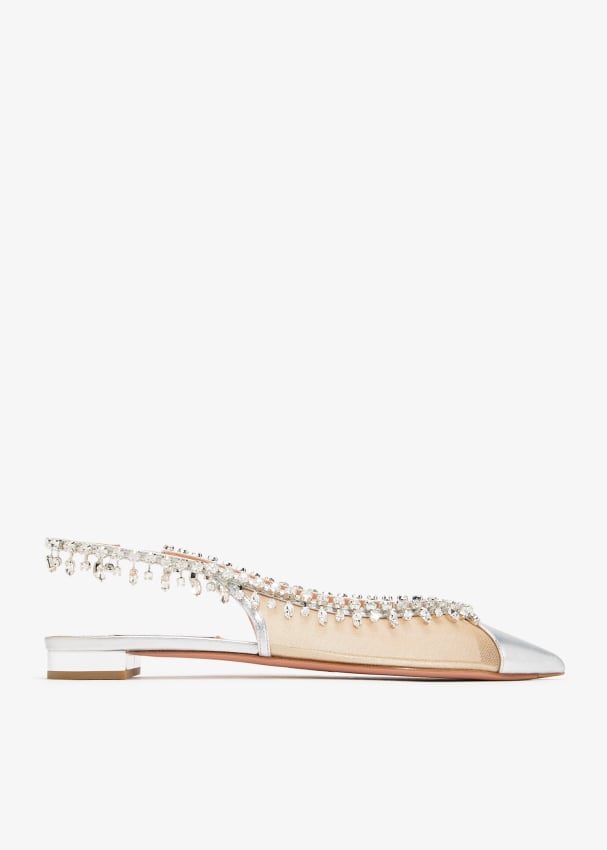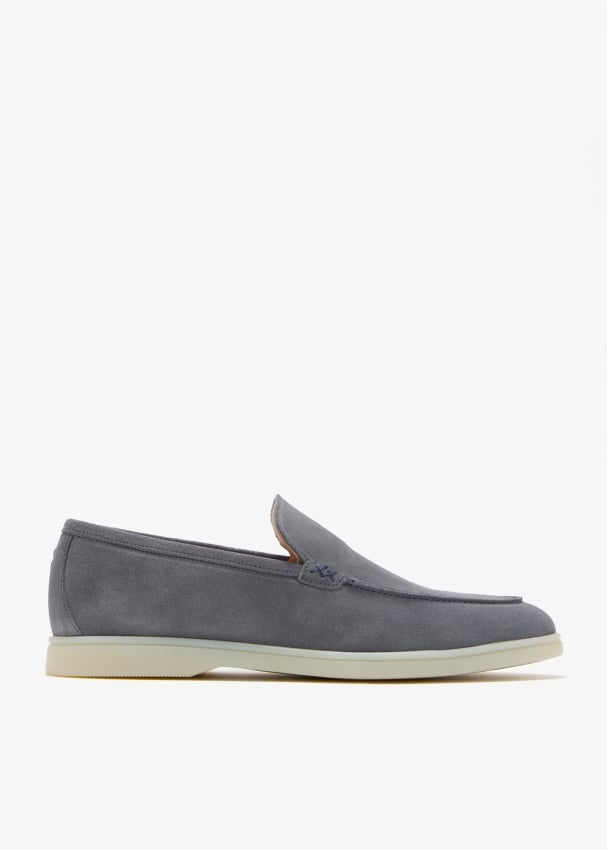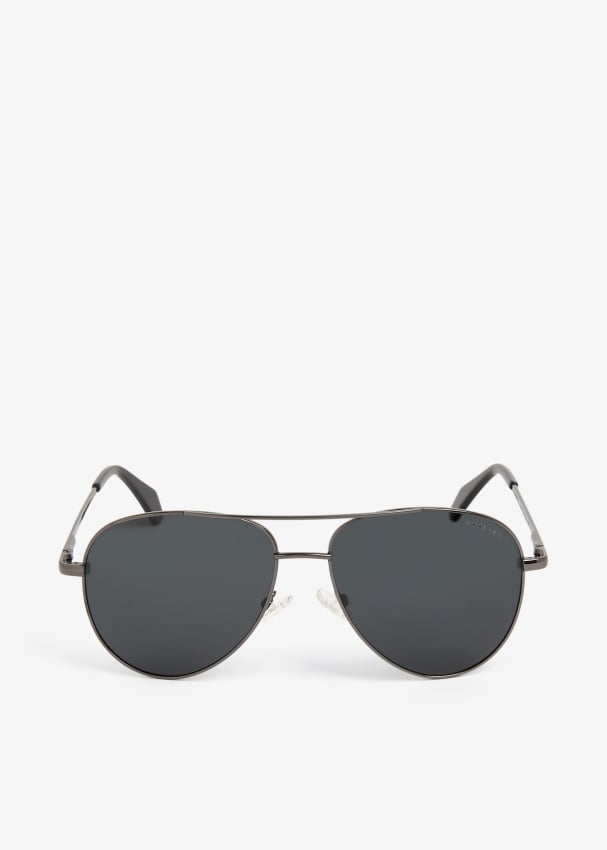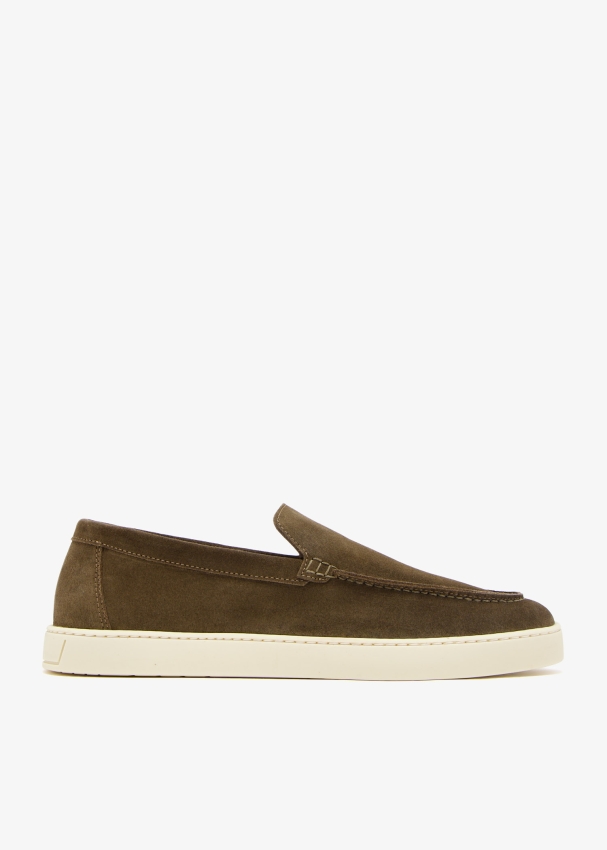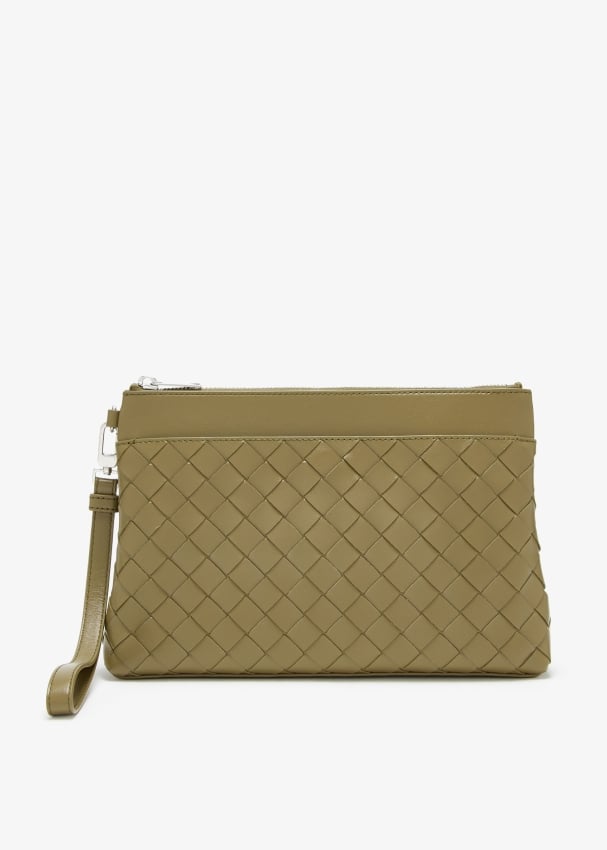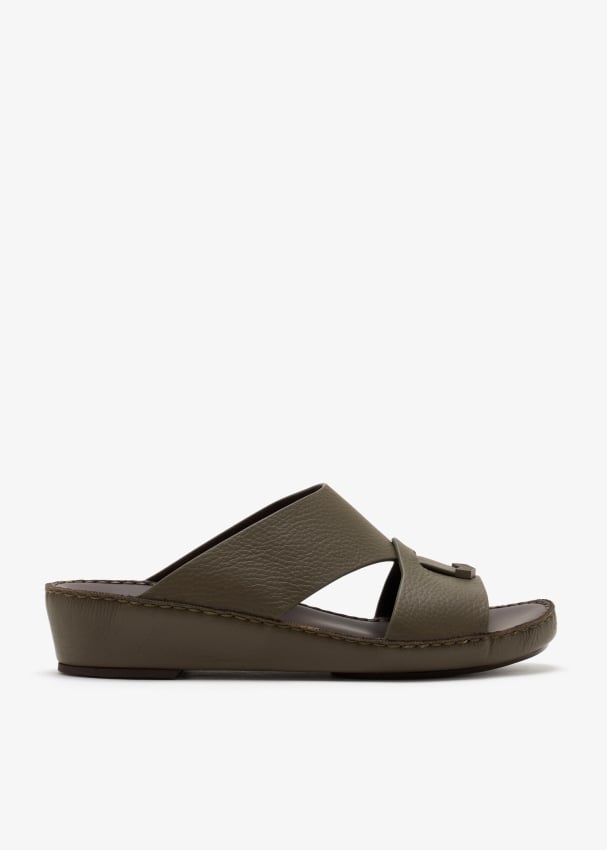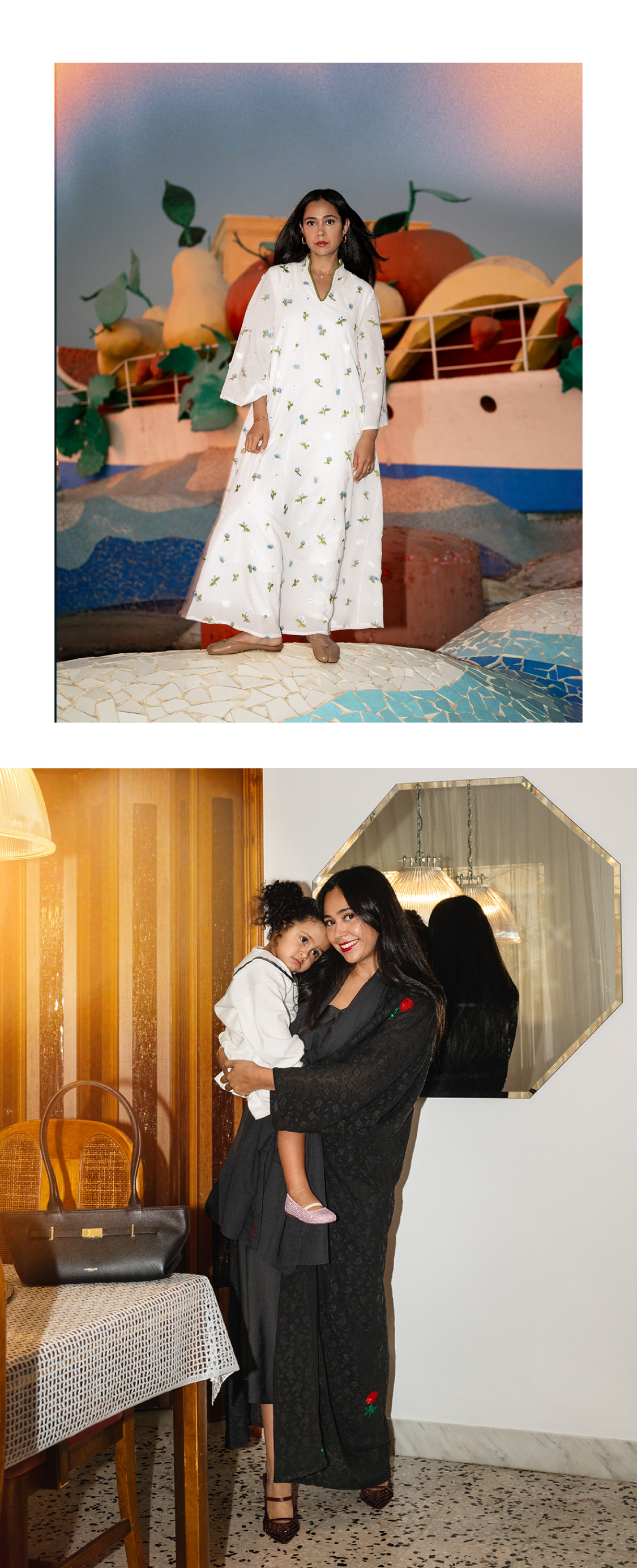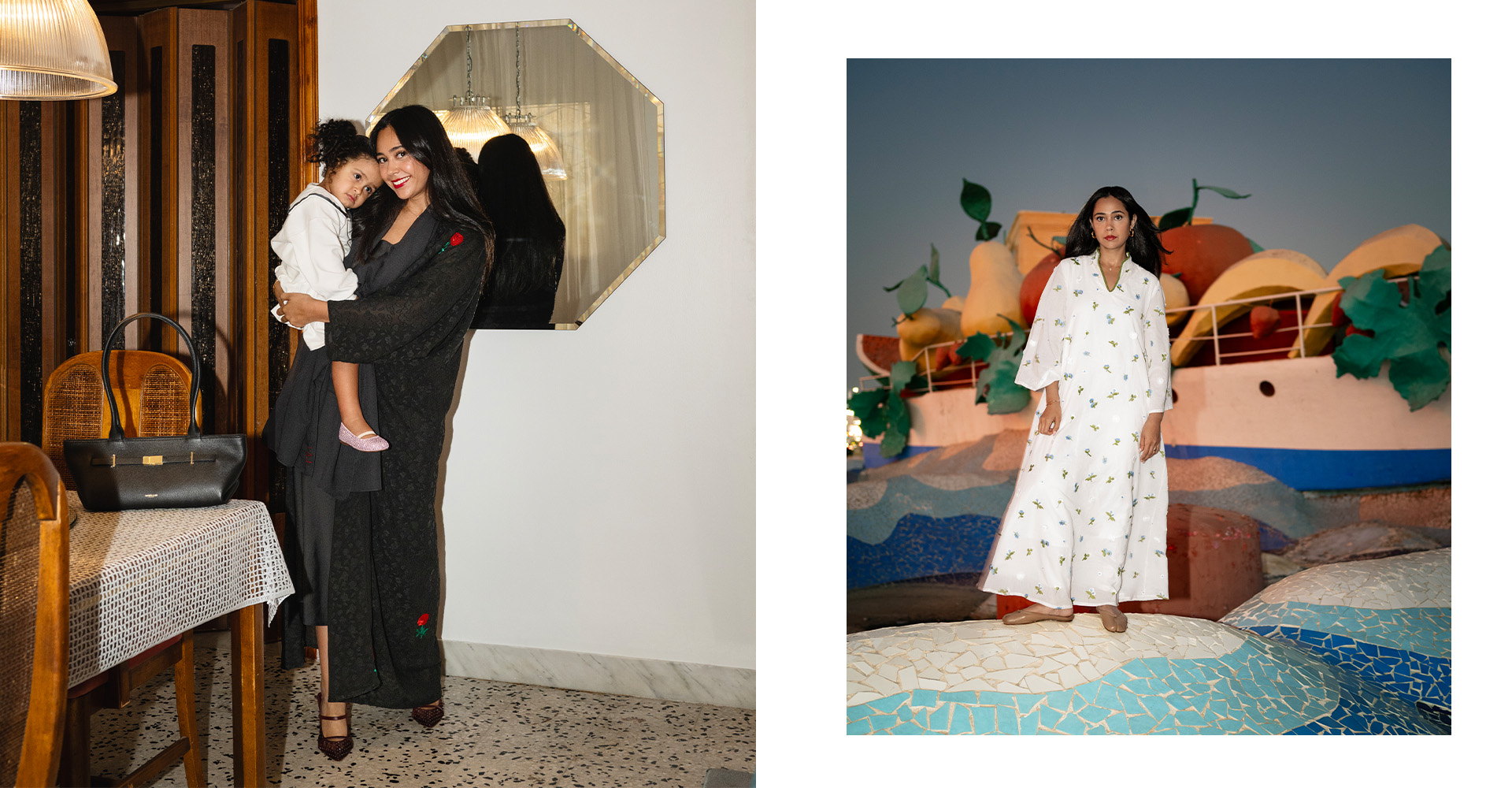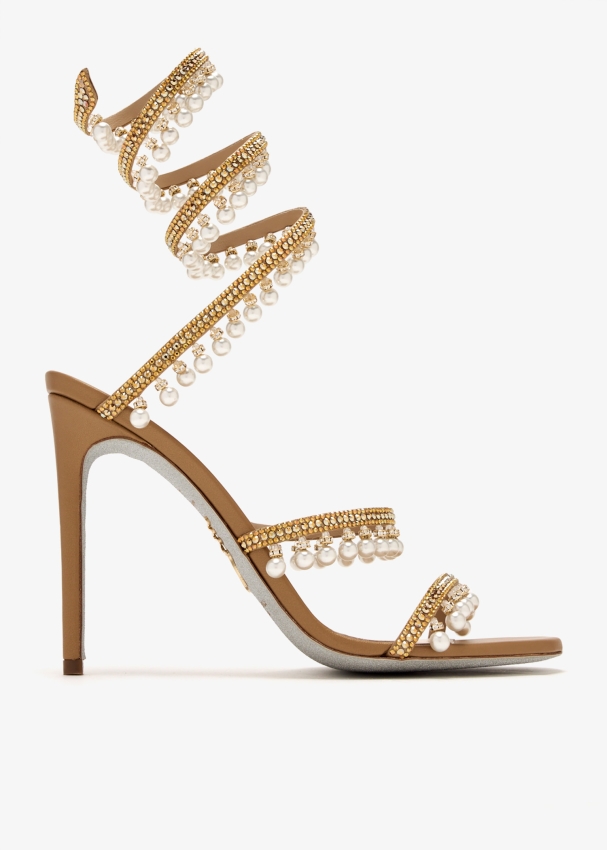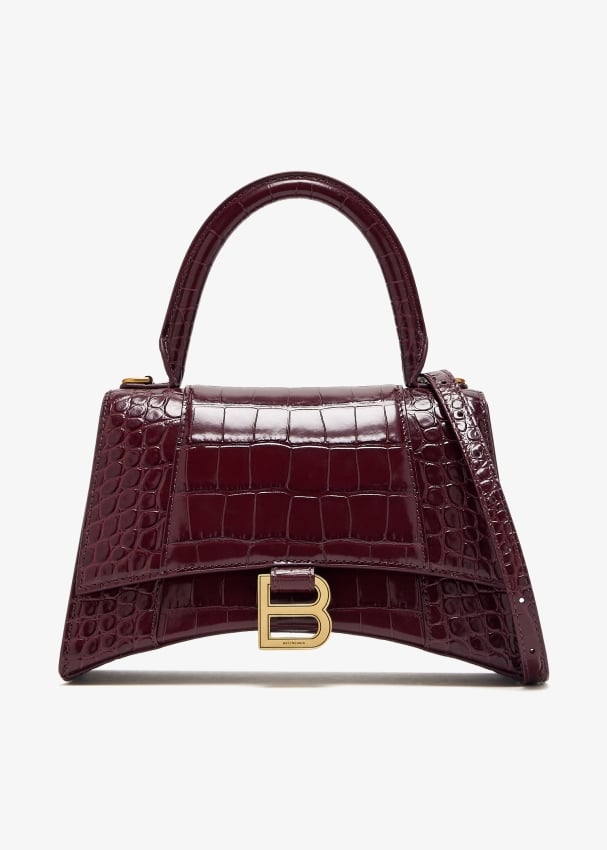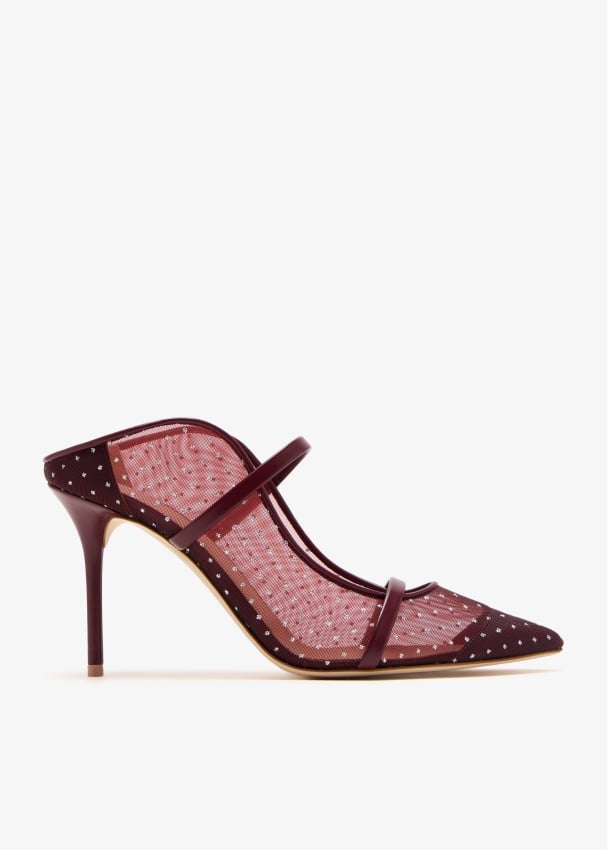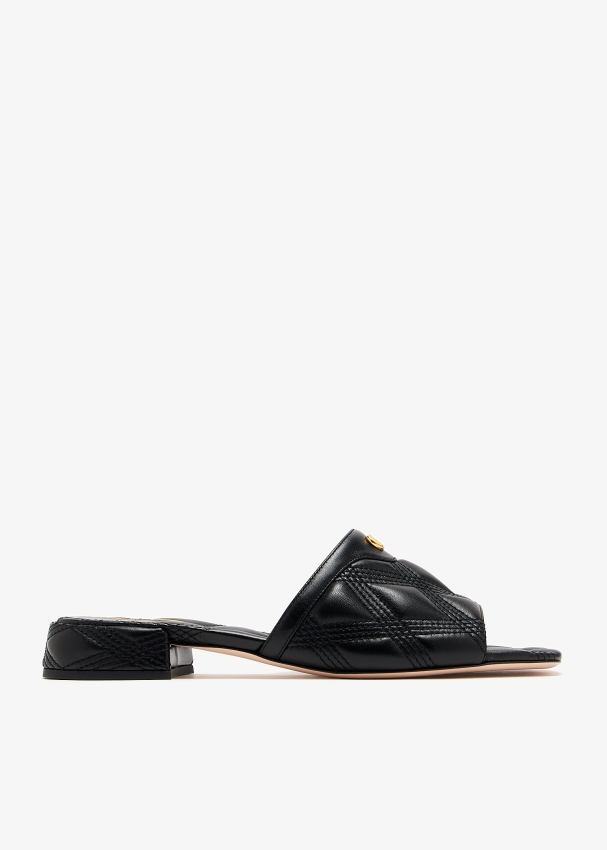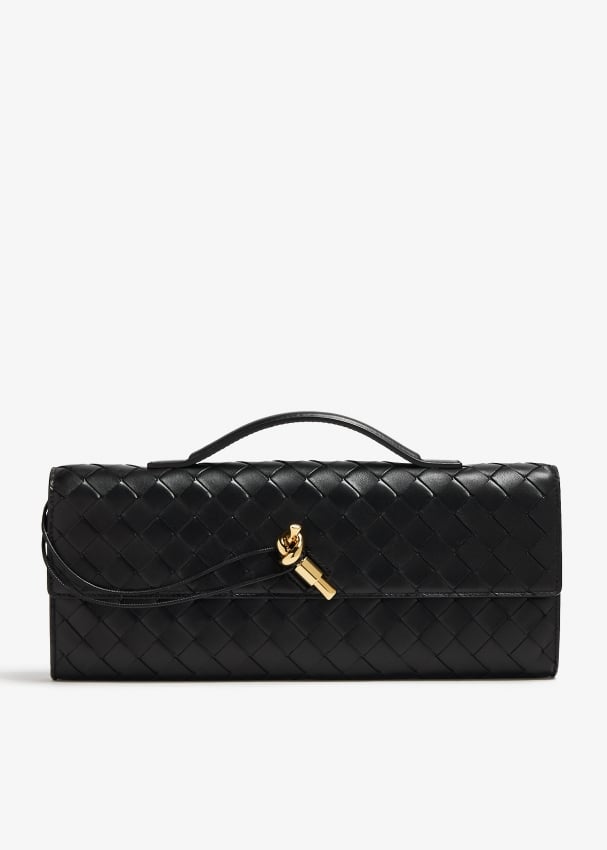‘Come Together’: Celebrating With the Region’s Visionaries
Level’s inner circle embraces the season’s lightness of being.
The second edition of Level’s ‘Come Together’ portraiture series showcases visionary creatives from the GCC and MENA regions, each featured in exclusive, limited-edition capsule collections. Capturing the contrast between a time of reflection and a busy city at dusk, the series explores their unique journeys, spotlighting how they cultivate light in their work, lives, and communities. Discover the trailblazers shaping culture with intention—and shop the looks they’re wearing. The series continues this week with Kuwait-based fashion stylist Joumana Soufi and her son Yousef, alongside podcast host Noor Elkhaldi and photographer Mohamed Sherif, sisters Amirah and Wafa Tajdin, mother-daughter duo Hiba and Moni Hasbini, the Bahraini architectural firm Shepherd Studio, and Saudi cultural consultant Alaa Balkhy.
Shop The CampaignJoumana Soufi & Yousef, Kuwait
Kuwait-based stylist Joumana Soufi is known for her impeccable taste and deep understanding of both regional and global trends. Beyond her career in fashion, she’s a devoted mother, balancing her passion with her love for family—especially her son, Yousef. Here, Joumana opens up about motherhood, style, and the rituals that define this season for her. With an effortless ability to navigate everyday life with style, Joumana’s story is one of balance, beauty, and inspiration.
What are your rituals, routines, and relationships that define this season?
Ramadan is a deeply spiritual time for me, centered on connection with faith and loved ones. Evenings are spent with family, sharing meals, enjoying gatherings, or appreciating Kuwait’s outdoor beauty. Each day ends with gratitude. Beyond the rituals, it’s a time for self-discipline and giving back. I focus on mindfulness, charity, being present, deepening relationships, and strengthening family bonds.
Your son is the light of your life. How would you describe him and his sense of style?
He truly is the brightest part of my world—full of energy, curiosity, and the sweetest sense of humor. His personality shines through in his style: independent, trendy, and confident in his choices. Oversized fits are his go-to style—baggy hoodies, relaxed pants, and cool sneakers. It's truly amazing to see his confidence radiate through his style choices!
What are your favorite things and places to enjoy in Kuwait this season as mother and son?
This season in Kuwait is all about enjoying the beautiful weather. My son and I love being outdoors, whether at parks where he can run freely or by the seaside for a stroll. We also spend plenty of time at his sports training, watching him grow, challenge himself, and build new skills. We also make time for our favorite traditions, such as ice cream dates or movie outings with popcorn and nachos. It’s these simple yet meaningful moments—laughing together, sharing stories, playing ‘I Spy,’ and creating lasting memories—that make this season so special for us.
What advice do you have for other young mothers raising kids in Kuwait and beyond?
My advice for young mothers is to embrace the journey with patience and flexibility. Every day presents new challenges, so be kind to yourself and remember it’s okay if things aren’t perfectly planned. Focus on balancing work, family, and self-care—your well-being matters too. And never underestimate the power of laughter and play—these moments create the deepest bonds and best memories.
Shop The Look View All
Noor Elkhaldi & Mohamed Sherif, Cairo
She is the incisive host of Arab American Psycho, a cutting-edge podcast that sparks profound conversations around the complexities of modern Arab identity. He is a visionary photographer whose lens has immortalized the soul of Cairo—capturing its people, streets, and culture with intimate authenticity. Together, Noor Elkhadi and Mohamed Sherif have crafted a narrative that is as much about personal expression as it is about universal connection. Offering a fresh, global perspective that resonates far beyond Cairo, this newly married Palestinian-Egyptian couple is shaping a new cultural lexicon for the MENA region.
Congratulations on getting married earlier this year. How would you describe the light of your life and their impact on you?
Noor: Thank you so much! Mohamed has this incredible way of making life feel lighter. He’s thoughtful, patient, and endlessly curious, which inspires me daily. He’s also someone who truly listens—not just to words, but to what’s left unsaid. Being with him has truly given me a deeper sense of peace.
Mohamed: Noor has this effortless warmth about her. She sees people deeply, and she makes even the most ordinary moments feel meaningful. She’s made me more aware of how I move through the world—more intentional, more present.
What are the rituals, routines, and relationships that define this season for you?
Noor: I try my best to be as intentional as I can with my time, creating habits that feel good and sustainable. Lately, that means carving out time for quiet mornings, staying connected with family, and allowing space for creativity without pressure.
Mohamed: This season has been about grounding myself in routine, especially after the wedding. I find a lot of comfort in photography and exploring Cairo, but also in small daily rituals like sharing meals with Noor, catching up with loved ones, and being mindful of the time I spend offline.
Mohamed, you’re known for capturing Cairo and its communities in beautiful ways. Where would be the best place to photograph the celebrations this season in the city?
Ramadan in Cairo has this energy that’s impossible to replicate. If I had to recommend a place, Khan el-Khalili is always special—especially at night when the lanterns glow and the streets come alive with people. But there’s also something really intimate about the way neighborhoods come together, from the communal tables set up for strangers to the kids running around with their fanoos lanterns.
Noor, you’ve interviewed countless personalities for your successful podcast, Arab American Psycho. What revelations have you uncovered over the years?
One of the biggest revelations I’ve had is that people are far more complex than we often give them credit for. Everyone has layers, contradictions, and moments of doubt—even those who seem to have it all figured out. I’ve also realized how much strength exists in vulnerability. Some of the most powerful moments on the podcast have been when guests allow themselves to be completely honest, whether it’s about failure, identity, or just the weirdness of being human. There are so many memorable quotes, but one that sticks with me is something along the lines of: “You don’t owe anyone the version of yourself they have in their head.” It’s a reminder that we’re allowed to evolve, shift, and grow into whoever we need to be.
What advice would you give to young creatives who are trying to find love and light in Cairo and beyond?
Noor: Don’t wait for permission. If you have something to say or create, just start. Cairo, and the world in general, can feel overwhelming at times, but there’s so much beauty in finding your own rhythm within it. Surround yourself with people who truly support you—people who challenge you in a way that feels constructive, not draining. And remember that success isn’t linear. There’s no single “right” way to do things.
Mohamed: Pay attention to the small details—they tell the best stories. Whether it’s through art, photography, or any other form of creativity, the most powerful work often comes from observing what others overlook. And don’t be afraid of stillness. In a city as chaotic as Cairo, finding quiet moments can feel impossible, but those are the moments where clarity happens.
Shop The Look View All
Amirah & Wafa Tajdin, Dubai
Amirah and Wafa Tajdin are the extraordinary sister duo behind Lulu & The Beanstalk, a chic café-bar-bookstore in Dubai's ICD Brookfield Place. Inspired by their grandmother, Mama Lulu, the curated space reflects their Kenyan heritage, a shared passion for storytelling, and an impeccable eye for refined design through its atmospheric interior, exceptional menu, and eclectic music nights for their insider community. Born in Nairobi and shaped by their Khaleeji heritage, the Tajdin sisters' visionary approach extends to their striking portfolio of campaigns and partnerships with luxury powerhouses, with Amirah’s short films garnering recognition at prestigious festivals such as Cannes and Sundance. This month, Lulu presents a spirited five-course meal inspired by cherished memories of Mama Lulu’s time in the UAE during the sisters’ teenage years.
Your grandmother Mama Lulu was the guiding light behind the origins and design of Lulu & The Beanstalk. In what tangible and intangible ways have you paid homage to her at Lulu?
Wafa: We've paid homage to her through the 'feeling' and 'vibe' of the space that she and her home were known for. Many of our customers refer to this feeling as their primary reason for coming back or liking our offering. Of course, we have food items on the menu inspired by her cooking and recipes, which are the basis of Lulu & The Beanstalk. But the loveliest thing we've come to appreciate is that we've created a space that provides comfort, safety, and a feeling of home and familiarity for most of our customers.
Lulu & The Beanstalk has become the heartbeat of Dubai’s creative social circle. How do you cultivate your inner circle?
Amirah: I like to consider us placemakers rather than restaurateurs. Whether we’re at Lulu & The Beanstalk on a Friday night with regulars who are now friends or catching up with some of our oldest and dearest friends in town on a layover, we stay pretty open—albeit selective—in the cultivation of who we call our people.
Has your work at Lulu influenced how you tell stories as a filmmaker and producer and are there any similarities between how you approach both endeavors?
Wafa: Lulu was born from a narrative and a story in Amirah's imagination, which ultimately, is how all our film endeavors are created, so they are extremely similar in that regard. Since we build sets in film, we approached building Lulu's from an architectural sense in the same way. Our food and drink story also encompasses both a visual and a taste journey that builds and borrows from our background in film. As a producer myself, the operational and financial side of things in the restaurant business has also been an easier transition than it would be for most first-time restaurant owners. It's not been perfect—certainly not easy—and on some days, we survive, while on others, we thrive. We don't stop learning, adapting, and taking things in stride. But one thing's for sure: we might need some reality TV cameras at Lulu's soon; we've missed a lot of great content over the last two years.
What are the rituals, routines, and relationships that define this season for both of you?
Amirah: Prayer and fellowship are two words that are deeply rooted in every Ramadan. It truly is my favorite season of the year, and always comes around at a time when I find I need spiritual grounding and quiet, or sometimes, the inspiration and motion I tend to require for my creative process and general well-being.
How do you celebrate this season in the city?
Amirah: Ramadan is very personal for me, and over the years, I’ve spent it in some of the most random places in the world—sometimes surrounded by people, sometimes alone. I tend to celebrate it with ritual, rest, and prayer wherever I find myself. However, Dubai has a festive buzz that no other city has during the Holy Month, and I love that we’ve given it a zing with suhoors and Ramadan collections that feel inclusive for people who don’t observe the month. It’s true community in a melting pot like our city.
Shop The Look View All
Hiba & Moni Hasbini, Dubai
HIBA HASBINI's journey is a beautiful story of creativity, passion, and family. It began with Hiba, a talented jewelry designer who created unique pieces for her daughters, Moni and her sister, before her personal passion blossomed into a full-fledged business in 2007, under the name H Designs by Hiba. Seventeen years later, in 2024, Moni officially joined the company, bringing a fresh perspective and a modern vision to the brand. Together, the mother-daughter duo rebranded the label to HIBA HASBINI, launching a new website and introducing a contemporary take on their timeless designs. Their collaboration is more than just about creating jewelry—it reflects their deep emotional bond and shared passion for design.
What’s the greatest lesson you’ve learned from your mother?
My mom is the sweetest and most genuine person I know. From her, I’ve learned the true power of humility and kindness, and that being a good person is all that matters. Since working with her at the age of seven, I’ve also learned the importance of resilience and strength, and how crucial they are for achieving your goals.
Growing up, how did your mom’s sense of style influence you?
My mom has been in the jewelry business since 2007 and always wore pieces she designed herself. Naturally, this inspired me to create my own designs. She would take me to the production house, where I would sit with the jeweler, make my own pieces, and leave with jewelry I had designed. For fashion, as a child, she gave me complete freedom to choose what I’d like to wear. She never judged my fashion choices; she allowed me to be creative in my own way, which influenced me to make my own decisions as I grew up.
What are the rituals, routines, and relationships that define this season for both of you?
Moni: Ramadan is about family, faith, and togetherness. It’s a time to gather around the table with loved ones, strengthen our connection with God, and cherish time spent with family and friends.
Hiba: We gather as a family for Iftar, Suhoor, and prayers. Spending time with family is the most important part of Ramadan for us. We also make sure to think of those less fortunate. Before Ramadan begins, we plan how we can give back so that during the month, we can actively help provide food and support to those in need.
In what ways does your daughter inspire you?
My daughter inspires me in so many ways. Her strength, determination, and passion push me to grow every day. She keeps me motivated to take care of myself, from fashion to health. When it comes to jewelry design, Moni plays a huge role. She brings fresh energy and an understanding of what the younger generation wants, as she is part of that generation. She helps me stay on top of trends, ensuring that our designs are not only timeless but also relevant and appealing to them.
What’s the best thing about working together?
Moni: Our dynamic is a blend of experience and passion. My mom has been in the industry for so long, and her expertise is invaluable. Meanwhile, my strengths lie in marketing and business growth and development. That synergy naturally translates into our brand, making it an extension of our mother-daughter bond. The best part is getting to work with my best friend every day. My mom is a creative at heart, and designing jewelry comes so naturally to her, as it’s been her forte for years.
Hiba: Moni’s business development and marketing expertise have played a pivotal role in shifting the brand. I enjoy seeing my daughter, who has been helping me since she was only seven years old, return to work full-time on the brand and bring her identity into it. The brand is now a representation of my bond with my daughter, which I deeply cherish and trust.
Shop The Look View All
Shepherd Studio, Bahrain
Bahraini architectural practice Shepherd Studio—led by Rashed AlAraifi, Ahmed AlMannai, and Abdulla Binhindi—is making waves with its culturally rich design work. Commissioned for the Bahraini Pavilion at Expo 2020 Dubai, its signature piece, the chrome hand-finished ‘Tila Chair,’ draws inspiration from a traditional folk game and is made of 210 stainless steel spheres. Other standout projects, including spatial designs and scenographies for the World Conference on Creative Economy and the Uzbekistan Art & Culture Foundation, showcase the trio’s dedication to local communities and global innovation.
What are the rituals, routines, and relationships that define this season for you?
It’s the time to realign our thoughts, plan with purpose, enjoy spiritual reflection amidst a buzzing urban life, practice communal worship, and engage with our communities.
How has your relationship with Bahrain and its cultural heritage shaped your design philosophy?
Being born and raised in Bahrain encouraged us to observe cultural heritage in the context of technological advancement. As an archipelago, it exposed us to Bahrain’s desert and sea cultures, triggering our design senses to explore ways to add value to the social, cultural, and environmental fabrics in which we live.
How are you going to be celebrating this season in the city?
It’s unlike any season for us. As we pass through the illuminated streetscapes of our neighborhoods, we renew our relationships with our communities by engaging in social, cultural, and family gatherings. We often discuss what we learn and the unique encounters we have at work, and they sometimes inspire new ideas such as our ‘Mosque-in-a-box’ project, which was a response to help reduce assembly time, labor, cost, and space concerning typical portacabin mosques that we usually see in event spaces and refugee camps.
What impact has your inner circle and community had on your creative work?
The people around us challenge our ideas and broaden our perspectives, often sparking unexpected inspiration. These conversations act as reminders for us that architecture is ultimately about the relationships between people and the environments in which they sit.
Shop The Look View All
Alaa Balkhy & Aziza, Jeddah
Alaa Balkhy is a Saudi artist and entrepreneur, renowned for her transformative impact on the region’s fashion and design scene. In 2011, she founded Fyunka, a fashion and accessories brand known for its distinctive illustrations. Raised between Montreal and Jeddah, Alaa’s cultural duality inspired the launch of Alaa Hashim Studios in 2019—a slow fashion label that showcased #MadeInSaudi creations on prestigious global platforms such as Maison Orient. Alaa’s work is a testament to her commitment to cultural storytelling, reshaping the representation of the Middle East within the global creative landscape.
What are the rituals, routines, and relationships that define this season for you?
Slow and intentional—this month is busy, with so much happening, but there’s also a peaceful moment before breaking fast. I want this year to be calm, without rushing or cramming everything into the calendar, just moving at my own pace.
What are a few of your favorite things and places this season?
Dates from different parts of Saudi Arabia, paired with laban, a yogurt drink.
I’m oddly obsessed with Madinah mint, paired with agave and hot water.
Balad is charming during Ramadan.
Wearing matching kaftans with Aziza.
Al Nakheel on Jeddah’s Corniche.
Soup and samboosa.
Hydration.
The light of your life is your two-year-old Aziza. How would you describe her and her sense of style compared to yours?
Tears fill my eyes as I write this. Her sense of style is confident—she isn’t concerned about what others think or whether an outfit looks good on her.
What are her favorite things to wear at the moment?
She loves sets, maybe because she sees them as friends that stick together. She has a green Ralph Lauren cotton set, a yellow Bode set with embroidered cherries, and a purple Nike shorts-and-T-shirt set—she loves purple.
In what ways has Jeddah inspired and influenced your creative work? How do you celebrate this season in the city?
I think it’s nostalgia and memories—growing up in the city and seeing it through different eyes over the years. Just like people evolve, so do cities. They grow, they change, but they’re still the same, just an updated version. Jeddah during Ramadan is simply beautiful.



